This blog post was authored by Allie Crasnow, a member of the Tivnu 6 cohort from Winter Park, FL. Allie enjoys painting, cooking, learning new skills , and generally working to take down the patriarchy. She interns at Our House, Friendly House, and Tivnu construction.
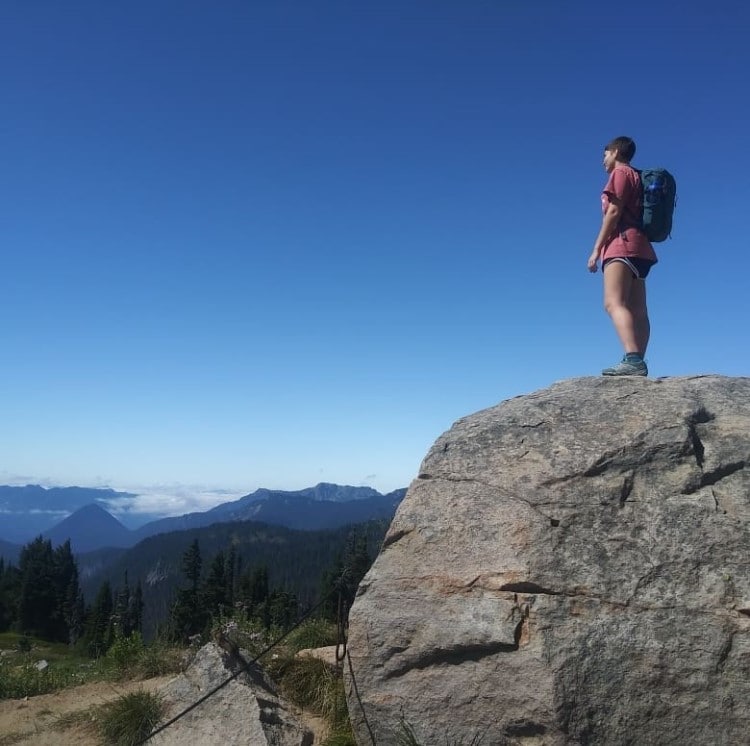
We need systemic change.
Each week, Tivnu has 2 EEs (Educational Explorations) where we explore different social justice issues in Portland and around the country. Many of these EEs feature discussions with people who work for nonprofits combating these issues, and many times towards the end of these discussions we ask one question: What do we need to do to fix it? Time and time again the answer is that we need systematic change. As one person in a world of billions, the idea of how I can make any sort of far-reaching change is intimidating to say the least. Comprehensive change seems unreachable if entire systems, such as our healthcare system or our food system, need to change.
So how do we fix these issues? If we can’t restart the system from scratch, what do we do? These are the questions I’ve kept in mind during our EEs recently. I’ve come up with a few ideas that, once you break it down, aren’t nearly as intimidating as the idea of changing the whole system single-handedly.
- Education
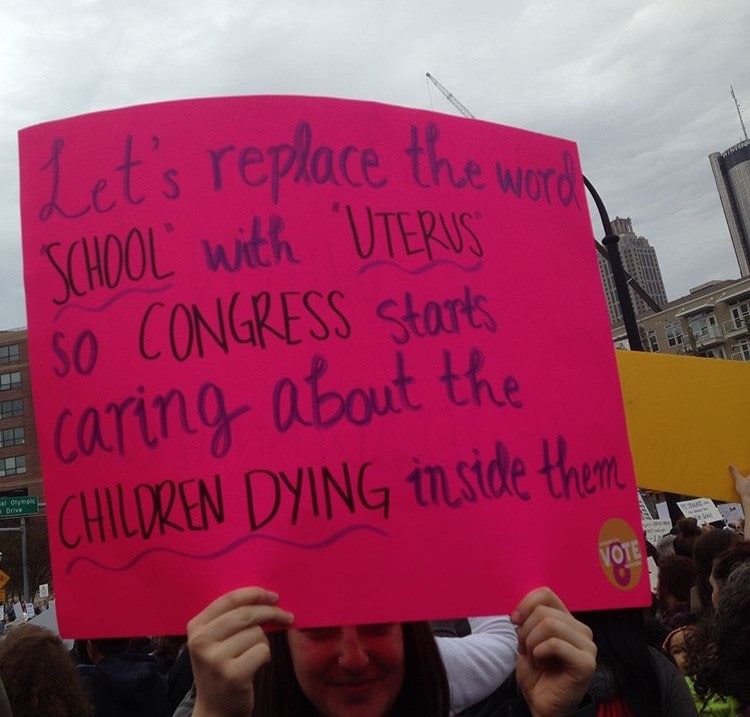
Spread the word about the issues that are happening. You can’t change something that you don’t know is happening. There are infinite educational resources out there. (Check out a link below for a website that I found to be a good tool for educating myself and others on many issues.) That is why it is also important to stay updated on current events and local issues in your area, your country, and the world. Figure out where news with real facts is reported in your area, and start there. After that, it is our job to educate those around us about issues such as housing inequality, food justice, racial justice, antisemitism, climate change etc.
- Start Small
Systemic change happens by starting small. The little things we do can build up and result in the change we’re looking for. For example, in September 1965, Cesar Chavez led the Delano grape strike and boycott in which members of the Agricultural Workers Organizing Committee protested years of poor pay and working conditions by going on strike. The strikers also encouraged everyday shoppers to boycott table grapes, which eventually spread throughout America. That’s the small start I’m talking about.
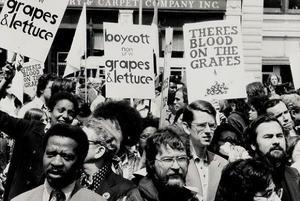
Cesar Chavez’s organization created a widespread boycott, which is what actually affects companies. By reducing the number of consumers who support a company, they are forced to change how they run their company and produce their products. In recent years, people refusing en masse to use plastic straws have caused large companies to change the products they use, such as Starbucks changing to paper straws and other restaurants changing their straws to more environmentally-friendly options.
Your small contribution can be as easy as buying a different brand of grapes sometimes, or buying a reusable straw or set of silverware (see website below) to use instead of plastic. By so many people choosing to make a small change, we are collectively reducing the amount of plastic we put in landfills we are reducing the amount of greenhouse gasses, air pollutants, and water consumption that would be emitted with the disposable plastic utensils.
One individual may make a small change, but in coordination, many individuals create big change. While systemic change is a big task to be completed, there are things we can do individually, whether it is starting to compost or reducing the amount of waste you produce in a week to contribute to combating climate change. It may not seem huge but if it’s part of a bunch of people organizing to do the same, it spreads good in the world and helps us start to think about the broader policy changes we need to make to effect change on an even larger scale.
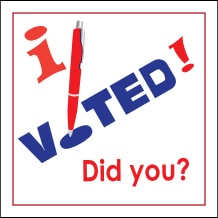
- Vote- Every. Vote. Counts.
One vote doesn’t seem like much, but if 2 million people think that their vote doesn’t matter, it adds up. Voting for people who will do right by people is important. By electing the right people into power, we can make the changes we need. Vote for the people who want what your community needs. We give people power by voting for them, and if we shift the power in the right direction, we can make the right systemic changes.
If you want to take it one step further and you are able to commit more time (or if you’re not old enough to vote yet), find a campaign in your area and volunteer for it. Most political campaigns are looking for volunteers. You can volunteer for a candidate’s campaign or for ballot measures on a particular law or issue. Sometimes they need someone to file paperwork, sometimes it’s going door to door and canvassing on important issues. You can do whatever works for you! Last year Tivnu helped canvas for a bunch of ballot measures (check out Tivnu’s work here on the measures below).
- Call out your peers on problematic language or misinformation.
People sometimes say things that are wrong and cruel because of their ignorance. If they’re going to be cruel, at least make them back up their argument! In normal conversation with people about current events, there can be a lot of biases.
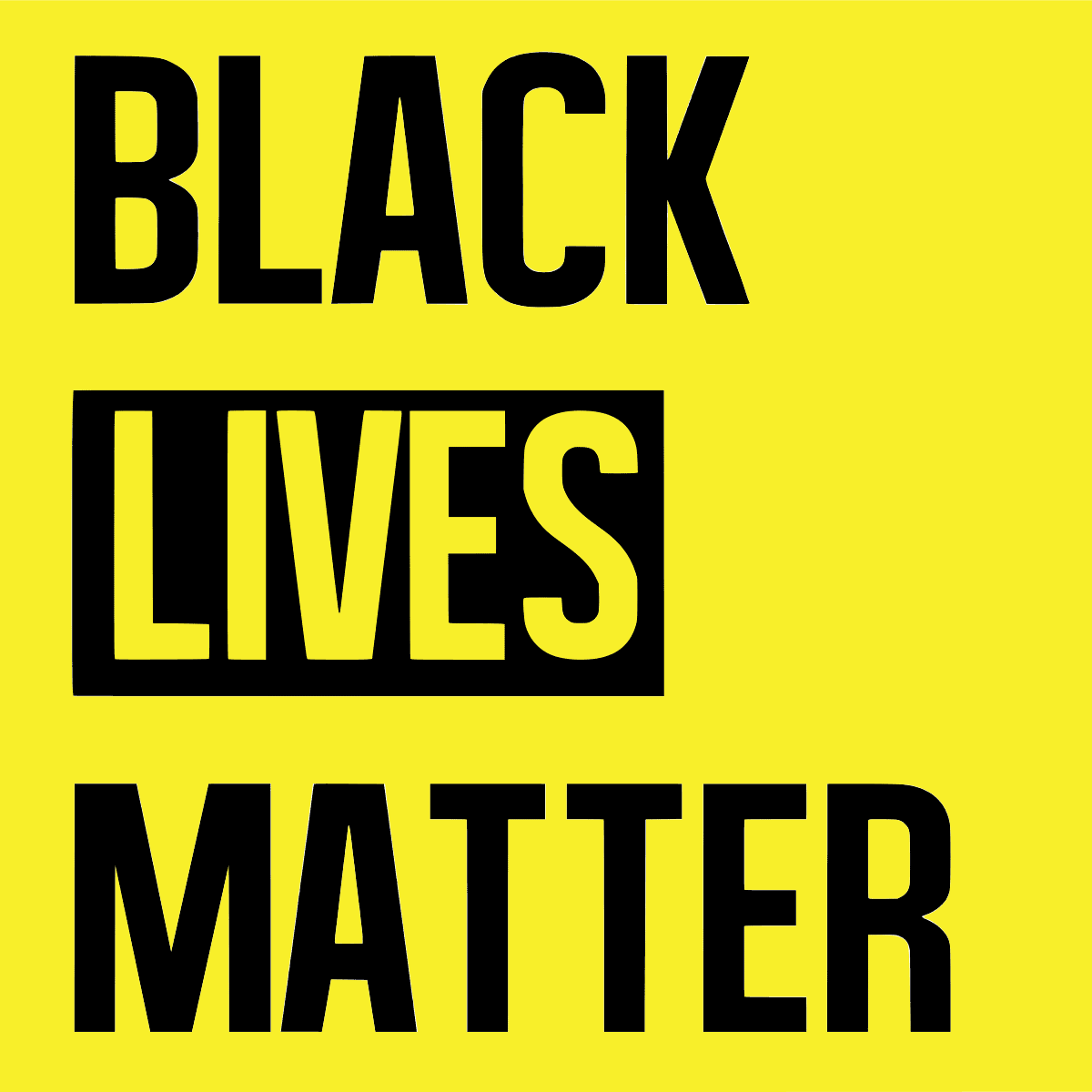
Conversations with my family members are sometimes based in ignorance, for example. One time I was talking to an uncle about why All Lives Matter is not the point of Black Lives Matter. “That’s not the point of the movement”, I said, “it’s to show that black lives ALSO matter. It’s to show that black people do matter, they are treated like they don’t and are often treated in very violent ways by our society.” I think it at least gave him the opportunity to think about what he was saying, and gave him the option to change his mind. Even if he doesn’t agree with what I was saying, he might not have known that viewpoint before. I at least gave him the option of actively engaging with something, instead of passively accepting his current viewpoint. Without having conversations about the issues happening in our country, we continue living in passive ignorance. Without knowing something is happening, you can’t change it!
For a long time I have lived my life wondering what I can do to leave the world a better place than I found it. The world kinda…. leaves a lot of room for improvement.

As I search for a purpose doing something I am passionate about in the world, I might as well try to make it better. It may be overwhelming, but this is how I’ve started: Volunteering some of my extra time, registering to vote and doing my research on who/what I’m voting for, and by building up the courage to educate others by starting the conversations that need to happen in personal spaces. Not everyone in the world is a social justice warrior and not everyone has to be, but little bits of change make the world a brighter and better place. If you can’t start the system over, take it piece by piece!
Sources I recommend:
- I like this website for educating yourself and others on different sides of an issue
- Here’s a site for buying reusable cutlery for eating on the go
- Ready to register to vote? Find out how here
- Read here about the ballot measures Tivnuniks worked on last year
Now go make some change!
Follow Us
Sign Up For Updates
Taking a gap year in the US can be as meaningful as doing one abroad.
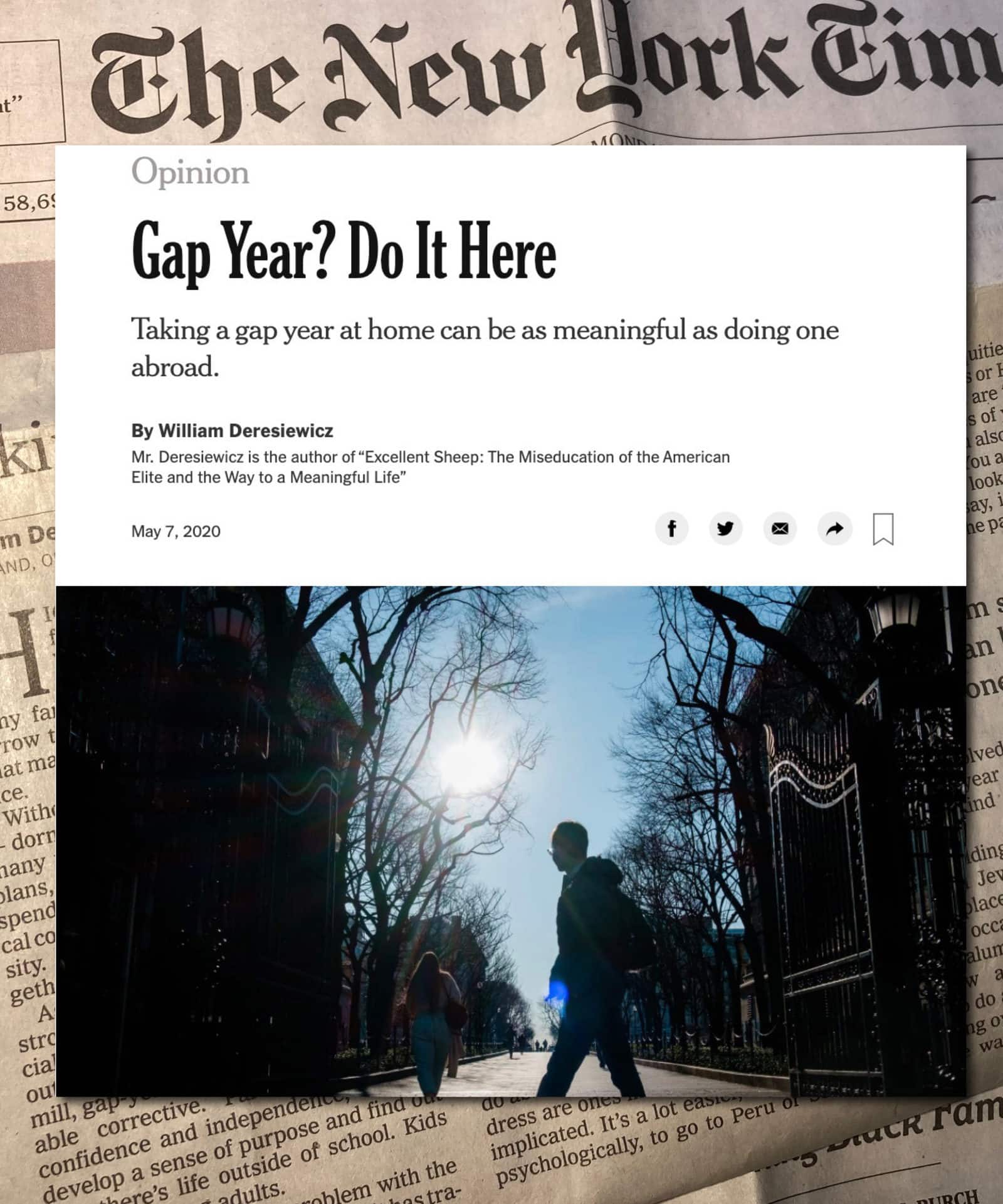 Featured in The New York Times
Featured in The New York Times